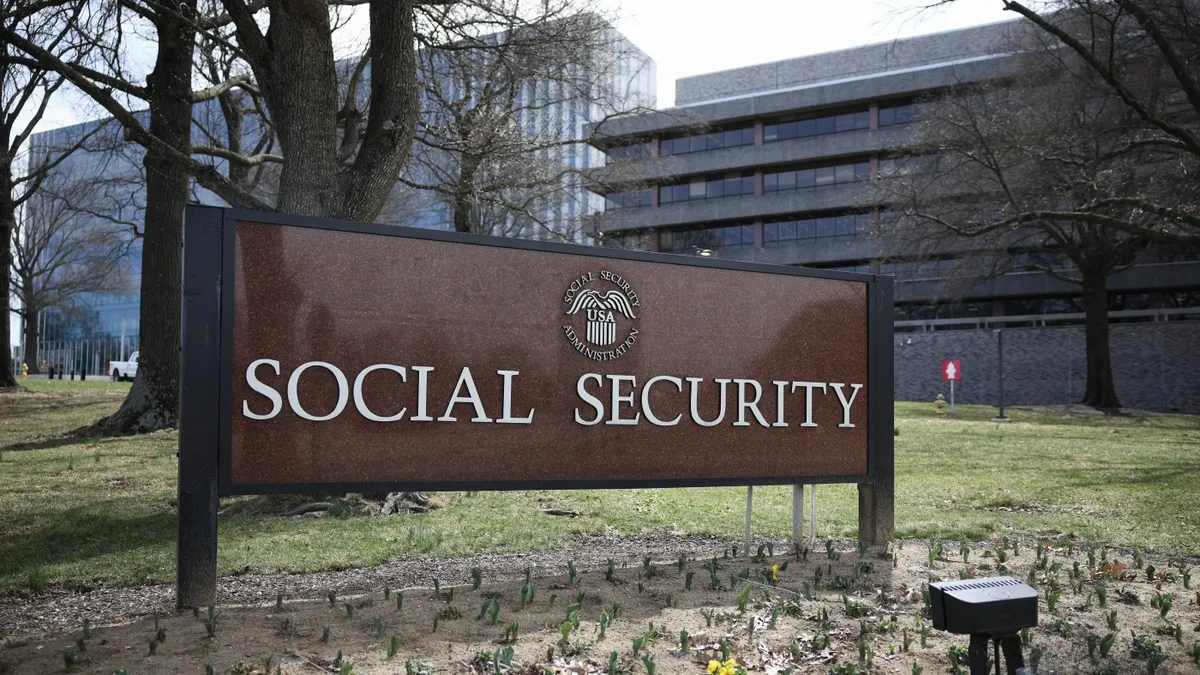
In the past month, the Trump administration has announced a series of sweeping changes at the Social Security Administration (SSA). These changes include plans to cut thousands of jobs, close numerous offices, and implement new policies, such as more stringent identity checks that may require in-person office visits. Advocates for seniors and individuals with disabilities are raising alarms that these alterations could significantly hinder access to crucial benefits.
Getting assistance from the SSA has already proven to be a difficult process for many. Aaron Woods, a Tennessee resident who has been trying for months to assist his mother with her Social Security and Medicare benefits, shared his experience with NPR. During his first phone call to the SSA, he was placed on hold for an astonishing 3 hours and 15 minutes before finally speaking to a representative. Despite the challenges, Woods noted that his local office has been helpful, even though they faced difficulties understanding why his mother was not receiving her Social Security payments.
After identifying a problem with his mother’s bank account that began last summer, Woods discovered this issue was preventing her from receiving her Social Security checks. Consequently, this lapse also affected her Medicare prescription benefits, which are financed through her Social Security payments. The lack of access to necessary prescriptions had severe consequences, as Woods recounted, stating, “On Jan. 21, my mom was hospitalized with stroke-like symptoms,” which turned out to be a result of untreated high blood sugar due to her inaccessible medications.
Advocates argue that the SSA has long struggled to manage its increasing workload, which includes not only retirement services but also programs for survivor benefits, disability benefits, and supplemental income for low-income individuals. Kristen Dama, a managing attorney at Community Legal Services of Philadelphia, emphasized the lack of staff as a significant barrier to timely benefit administration: “There simply have not been enough workers to administer the benefits timely.” The agency's plan to cut 7,000 jobs, while already operating at a 50-year low of about 57,000 employees, raises further concerns about the potential for increased backlogs.
SSA leaders assert that their reorganization efforts will enhance service delivery. They plan to eliminate six out of ten regional offices, which Dama believes will greatly impact her organization's ability to address problems for clients. “The regional offices are really the fixers… They are where problems that can't be solved get escalated,” she explained. In a statement to NPR, an SSA spokesperson claimed that these changes are aimed at identifying efficiencies and reducing costs while prioritizing customer service.
Another significant change announced by the SSA involves a new identity verification policy. Acting commissioner Lee Dudek, appointed by President Trump, revealed that beneficiaries will now be required to visit a Social Security office in person for benefit claims and direct deposit changes if they cannot utilize the online verification system. Dudek stated that “for too long, the agency has used antiquated methods for proving identity,” aiming to better protect Americans while expediting services.
However, this announcement has drawn criticism. Nancy LeaMond, AARP's executive vice president, labeled the fast-tracked plan as impractical, predicting it would lead to increased headaches and extended wait times for routine customer service needs. Dozens of Democratic Congress members have also expressed their concerns, urging Dudek to reconsider the change, which they believe could create additional barriers, particularly for those living far from SSA offices.
During a recent event hosted by the National Academy of Social Insurance, two former SSA commissioners voiced serious concerns about the agency's direction. Martin O'Malley, a Biden nominee, and Michael Astrue, a Bush nominee, both highlighted that while striving for efficiency is appropriate, it must be approached correctly. O'Malley warned that the ongoing changes could lead to a significant loss of personnel and deeper issues for those relying on SSA services. “I really hope I’m wrong,” he said, but indicated that the necessary actions for a potential system collapse have already been initiated.
Max Richtman, president and CEO of the National Committee to Preserve Social Security and Medicare, echoed these sentiments, suggesting that these actions aim to undermine the widespread support for Social Security. “By making it more difficult to navigate the program… the goal here is pretty simple,” he said, emphasizing that the intention appears to discourage public support for Social Security.
As the SSA undergoes these significant changes, Aaron Woods remains anxiously awaiting resolution for his mother’s situation. With her health deteriorating and her Medicare benefits still inaccessible, Woods expressed deep concern over the mounting medical bills. “I don’t have the funds to take care of that, and neither does she,” he lamented, highlighting the urgent need for effective support from the SSA.
In conclusion, the recent changes at the Social Security Administration have ignited significant debate over their potential impact on seniors and individuals with disabilities. As advocates continue to voice their concerns, the future of Social Security services hangs in the balance, with millions of Americans depending on timely and efficient access to essential benefits.